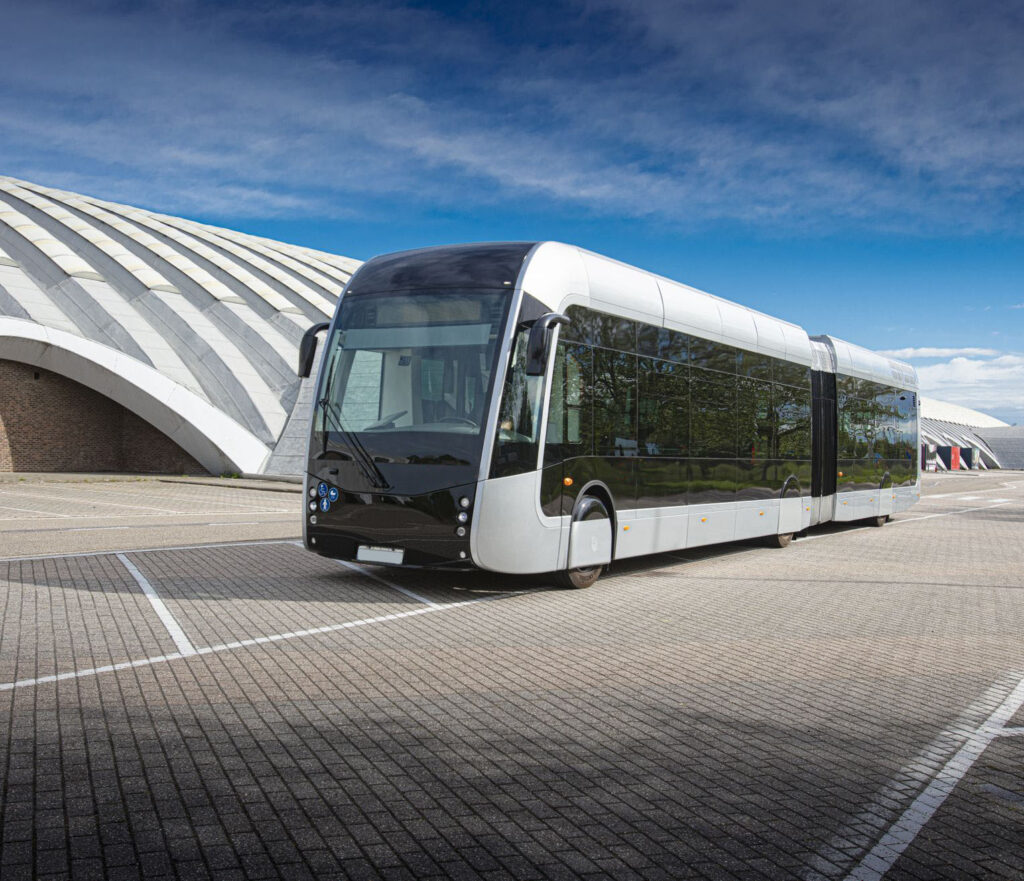"CHIC"

Saubere Wasserstoff-Busse in europäischen Städten
Das Projekt „CHIC“ (Clean Hydrogen in European Cities) ist ein essentiellen nächster Schritt in Richtung einer vollständigen kommerziellen Markteinführung von Wasserstoff-Omnibussen mit Wasserstoff–Brennstoffzellenantrieben. Das Projekt wird die Integration von 26 Wasserstoff-Bussen in den Alltagsbetrieb auf regulären Busstrecken in fünf europäischen Großstädten demonstrieren.
Das Projekt wird durch die Verkehrsbehörden in Aargau (Schweiz), Bozen (Italien), London (GB), Mailand (Italien) und Oslo (Norwegen) sowie durch die EU-Organsiation FCH JU (Joint Undertaking for Fuel Cells and Hydrogen) unterstützt und basiert auf einer schrittweisen Einführung und Förderung des Aufbaus von H2FC-Busflotten, den erforderlichen Wasserstofftankstellen und der zugehörigen Infrastruktur. Im Rahmen des Projekts arbeiten erfahrene und neue Städte in Partnerschaften zusammen, um eine wirksame und reibungslose Einführung der neuen Systeme heute und in der Zukunft sicherzustellen. Zusätzlich wird das Projekt in ähnliche Projekte eingebunden, die vollständig aus andern Quellen finanziert sind, wodurch die Wirkung des FCH JU-Programms vervielfacht werden kann.
Das Projekt zielt auf die Nutzung der Ergebnisse aus vorangegangenen Projekten durch die Einbindung von sogenannten Phase 0-Partnern in Berlin, Köln, Hamburg und Whistler (Kanada), die ihre Erfahrungen mit brennstoffzellenbetriebenen Bussen in ihren jeweiligen Verkehrsnetzen einbringen können.
Nach den erfolgreichen Feldtestversuchen der ersten und zweiten Generation von H2FC-Bussen innerhalb der Projekten CUTE und HyFLEET:CUTE geht CHIC nun weiter auf dem Weg der Entwicklung der modernsten Generation von brennstoffzellenbetriebenen Hybridbussen voran, die kurz vor der Markteinführung stehen. Die Busse werden von Mercedes-Benz sowie von Wright & Van Hool geliefert. Langfristig ist ab 2012 die Einbeziehung von 14 weiteren Regionen in Europa – den sogenannten Phase 2-Partnern – geplant, um auch dort in Zusammenarbeit mit der Partnerschaft der Europäischen Regionen, Städte und Gemeinden für Wasserstoff und Brennstoffzellen (HyRAMP) die ersten H2FC-Busflotten im öffentlichen Verkehr einzuführen.
Ein weiterer wichtiger Teil des Projekts befasst sich mit Umwelt- und Wirtschaftsthemen sowie sozialen Aspekten hinsichtlich des Einsatzes von Wasserstoff-betriebenen Bussen.
Wasserstoff ist ein Energieträger wie elektrischer Strom und kann aus verschiedenen Primärenergiequellen einschließlich erneuerbaren Energiequellen gewonnen werden. Brennstoffzellen können in elektrischen Antrieben eingesetzt werden. Da sie Wasserstoff verbrennen und dabei nur Wasserdampf emittieren, werden sie eine große Rolle bei der Verringerung lokaler Luftverschmutzung sowie bei der Zurückführung der Abhängigkeit des europäischen Transportsystems von fossilen Brennstoffen spielen. Mit Brennstoffzellen lassen sich auch größere Fahrzeuge, wie z.B. Nutzfahrzeuge, SUVs und Omnibusse betreiben; sie bieten ein beträchtliches Einsatzspektrum.
Weitere Infos auf www.chic-project.eu
Hydrogen powered (FCH) buses in european cities
CHIC, the Clean Hydrogen in European Cities Project, is the essential next step leading to the full market commercialization of Fuel Cell Hydrogen powered (FCH) buses.
The project involves integrating 26 FCH buses in daily public transport operations and bus routes in five cities across Europe – Aarau (Switzerland), Bolzano/Bozen (Italy), London (GB), Milan (Italy), and Oslo (Norway). The CHIC project is supported by the European Union Joint Undertaking for Fuel Cells and Hydrogen (FCH JU) with 26 million Euros, and has 25 partners from across Europe, along with industrial partners for vehicle supply and refuelling infrastructure. The project is based on a staged introduction and build-up of FCH bus fleets, the supporting hydrogen refuelling stations and infrastructure in order to facilitate the smooth integration of the FCH buses in Europe’s public transport system.
The CHIC project will forge partnerships between cities which have previously gained experience with hydrogen powered buses and 14 new cities and regions in Europe which are considering moving into the field. These partnerships will facilitate the effective and smooth introduction and expansion of the new systems now and into the future.
An important part of the project will be to assess the environmental, economic and social impacts of the use of hydrogen powered buses. Hydrogen can be produced by different methods, including using renewable energy. Fuel cells use hydrogen to produce electricity while emitting only water vapour. Hydrogen and fuel cells can therefore play an important role in the reduction of local air pollutants, as well as in the decarbonisation of Europe’s transport system. Hydrogen powered transport is currently able to meet the normal operational requirements of buses and light passenger and commercial vehicles. The objective of CHIC is to move these demonstration vehicles towards full commercialization by 2015.
The project will also link with similar projects in Berlin, Cologne, Hamburg and Whistler (Canada). These projects will bring their results to the CHIC partnership so that the CHIC cities can leverage off their considerable expertise and experience in the operation of hydrogen buses in public transport fleets. These projects are fully funded from other sources, thereby multiplying the impact of the funds injected into CHIC by industry and the European Union.
The buses in the CHIC project will be supplied by three different manufacturers and the hydrogen refuelling infrastructure will involve the main industrial players active in hydrogen infrastructure development around the world.
CHIC sees the deployment of the latest generation of fuel cell hybrid (FCH) buses, building on the successful field-tests of first and second generation FCH buses within the CUTE and HyFLEET:CUTE projects.
The project will guide additional regions in Europe in their first fleet application of FCH buses in public transport from 2012 onwards.
PROJEKT PARTNER
- EvoBus GmbH
- Air Products Plc
- Azienda Transporti Milanesi S.p.A.
- Berliner Verkehrsbetriebe A.ö.R.
- Element Energy Limited
- Euro Keys SPRL
- GTT S.p.A.
- Hamburger Hochbahn AG
- HyCologne – Wasserstoff Region Rheinland e.V.
- HyRaMP
- Infraserv GmbH & Co. Höchst KG
- Institut für Innovative Technologien Bozen Konsortial-GmbH
- ISE Corporation
- Linde AG
- London Bus Service Ltd
- PE INTERNATIONAL GmbH
- PLANET – Planungsgruppe Energie und Technik GbR
- PostAuto Schweiz AG
- SHELL DOWNSTREAM SERVICES INTERNATIONAL BV
- Spilett new technologies GmbH
- Suedtiroler Transportstrukturen AG
- TOTAL Deutschland GmbH
- UNIVERSITAET STUTTGART
- Vattenfall European Business Services GmbH
- Ruter As
- Wrightbus Limited
- Centro Ricerche Fiat
- BC Transit
